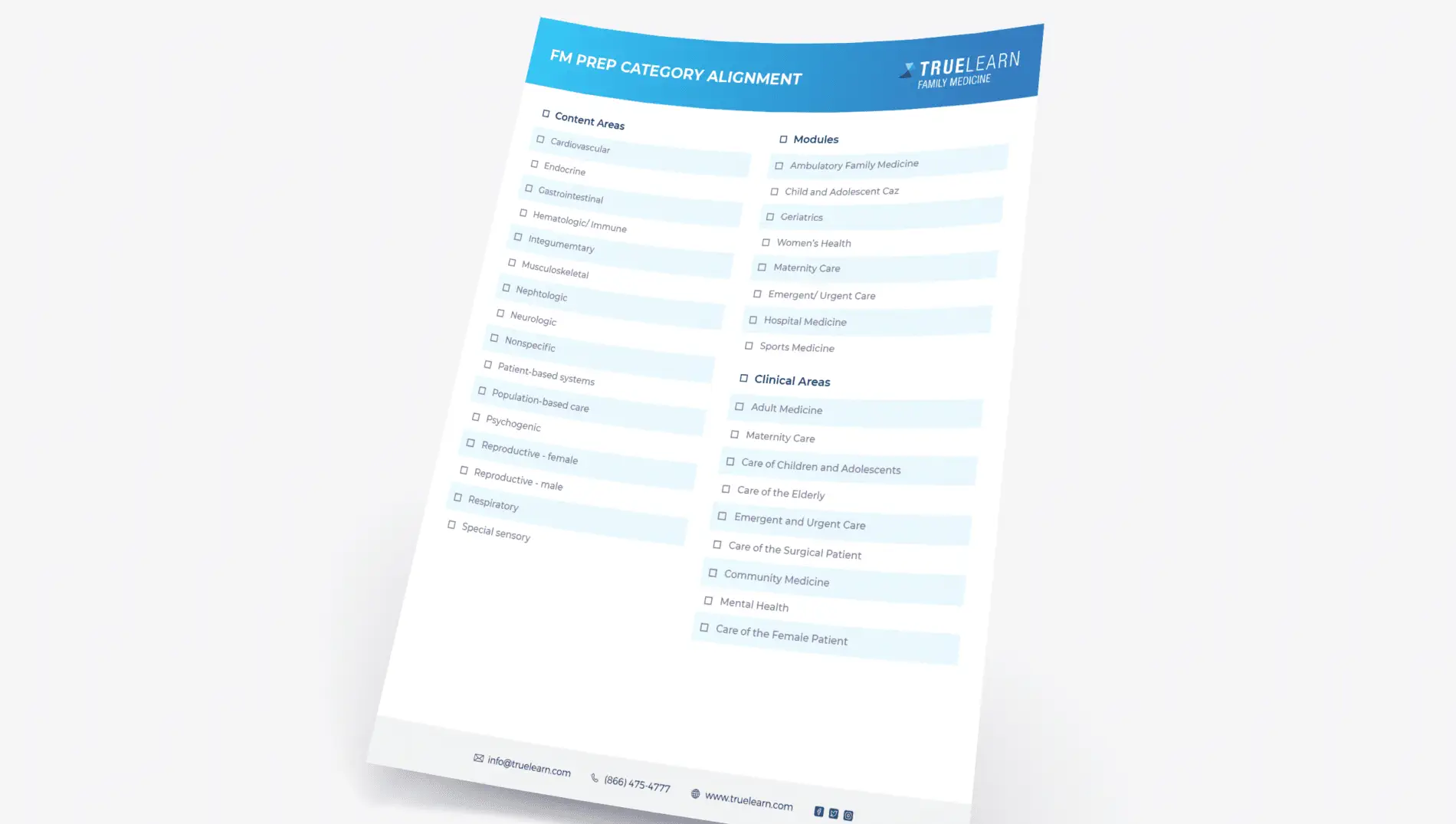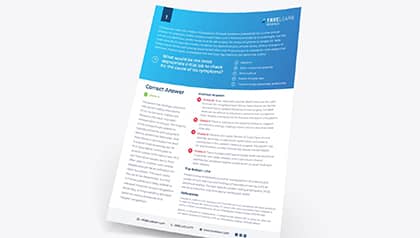How to Become a Certified Anesthesiologist Assistant
Follow our step-by-step guide on how to become a certified anesthesiologist assistant (CAA)! Here you’ll find helpful advice, resources, and tips on how to pass the National Commission for Certification of Anesthesiologist Assistants (NCCAA) certification exam on your first attempt.
Step 1: Earn Your Undergraduate Degree
First and foremost, you must fulfill the education requirements to become a CAA, which includes completing a bachelor’s degree in a science field. Ultimately, you should graduate with a strong foundation in pre-medical coursework such as psychology, biology, physics, and chemistry. This time should be used to gain proper healthcare experience as well.
Step 2: Graduate School
Next, you must apply to a master’s program for anesthesiologist assistants. To apply, you need to fulfill the necessary program requirements. These requirements may include letters of recommendation, healthcare experience, interviews, and completion of the MCAT (Medical College Admission Test) or the GRE (Graduate Requisite Exam). Check your program’s requirements before applying.
During your two-year program, you’ll gain hands-on experience, learn in the classroom, and receive your Master of Science degree in Anesthesia.
Step 3: Become Certified
Finally, you’ll need to obtain your certification to practice. Earning your degrees and passing the NCCAA certification exam seem so simple when broken down into these three steps. It’s going to take years of hard work and stressful studying to get yourself to your goal. Take it one step at a time, ask for help when/if you need it, and stay focused. Study for and pass the NCCAA certification exam to enter the workforce using the resources and tips below.
How to Pass the NCCAA Certification exam
From resources to study tips for the NCCAA certification exam, here’s what you need to succeed.
1. Use Study Resources
- Books: While you may be tempted to purchase a board review book, your course textbooks from your CAA master’s program will do the job. In fact, the NCCAATest.org certification exam handbook has a list of principal anesthesia textbooks that were utilized in exam item development. Cross-reference these books to the ones in your library and review away.
- Notes: Writing and reviewing notes during study sessions will propel you toward success. If any information sticks out to you as unfamiliar or important, utilize your go-to note-taking, bookmarking, or highlighting method to review, practice, and easily access information.
- Digital flashcards: This comprehensive exam has a vast amount of content, so avoid physical flashcards. Digital flashcards can help you review and challenge yourself quickly in one of the six major content areas of the exam—or you can even break down the content areas into subcategories.
- Question banks: Use practice questions to simulate the exam environment, measure your progress, and identify your strengths and weaknesses. TrueLearn’s Anesthesiologist Assistant SmartBank provides anesthesiologist assistant resources to prepare you for your NCCAA exam. With more than 1,000 practice questions, thorough explanations of right and wrong answers, customizable quizzes to simulate the exam itself, and a performance dashboard to track your progress, you’ll pass in no time.
2. Create a Study Strategy
Studying should be a well-organized and planned process. And it should be tailored to study methods that work best for you. Be sure to utilize any available advice from peers, mentors, and online communities who may offer their own study tips for the NCCAA certification exam.
Begin by viewing the content outline at NCCAATest.org and dividing and conquering each area. You should have a method to measure your progress along the way so you can determine your strengths and weaknesses in real time and reshape your study schedule around those results. About a month before your exam date, simulating the exam with a practice test can help you identify areas you might still need to focus on, and help you to refine your test-taking skills.
3. Manage Your Time
You must allocate adequate time to study and set realistic and smart expectations for yourself. Avoid cramming and overthinking. During the months leading up to test day, practice time management and breathing exercises. Both of these tactics will help your stress level while studying and taking the actual exam. Overall, it’s all about maintaining a goal-orientated mindset while shaking off the nerves—they’re normal.
TrueLearn SmartBank is not just another question bank. Our platform is enhanced with all the features to help you reach your goals. You can narrow down questions by keywords and create a focused test, know where you stand against your peers, view your testing habits, and set goals all in one platform. With 1,000+ practice questions written by content experts, we even offer a first-time pass guarantee.

